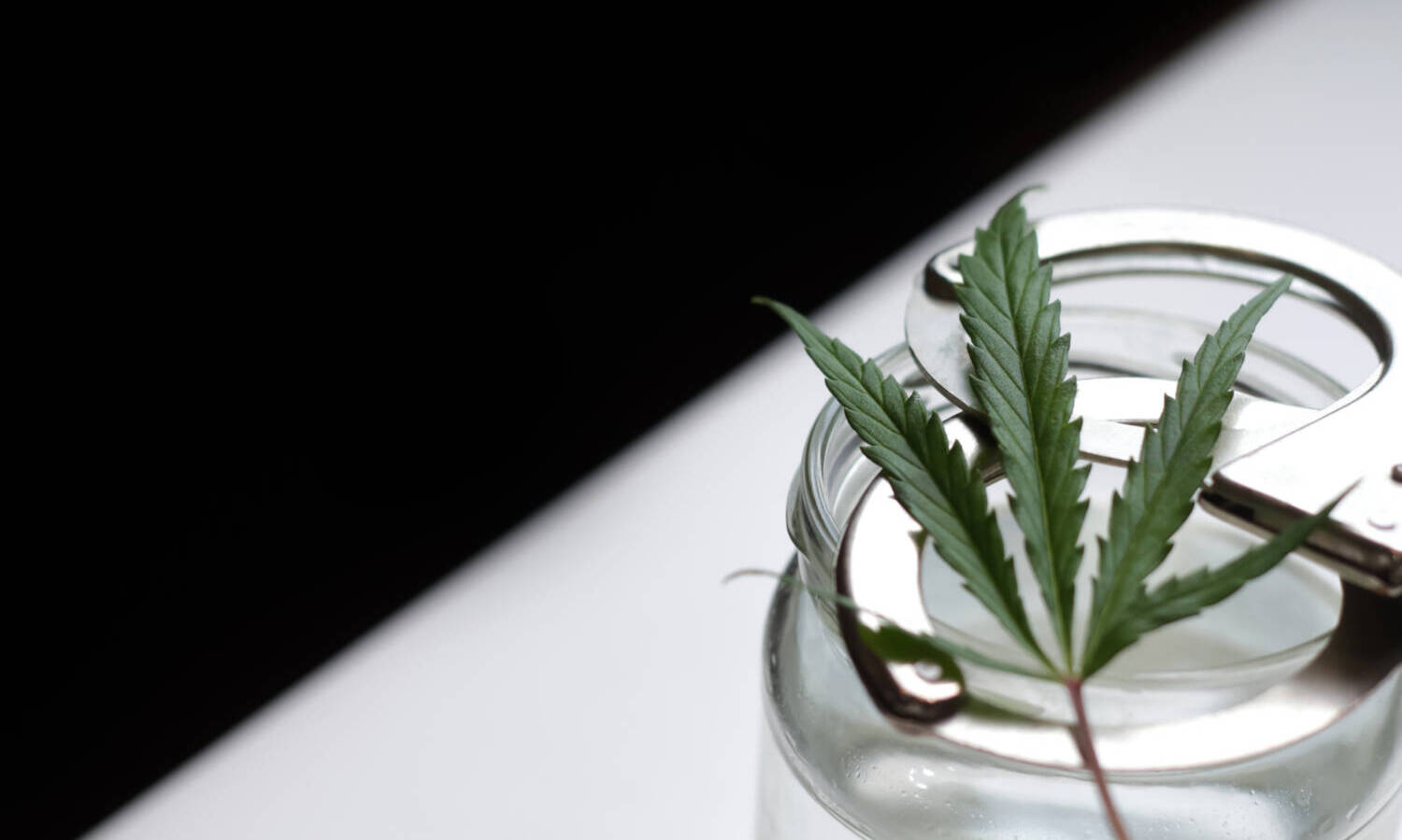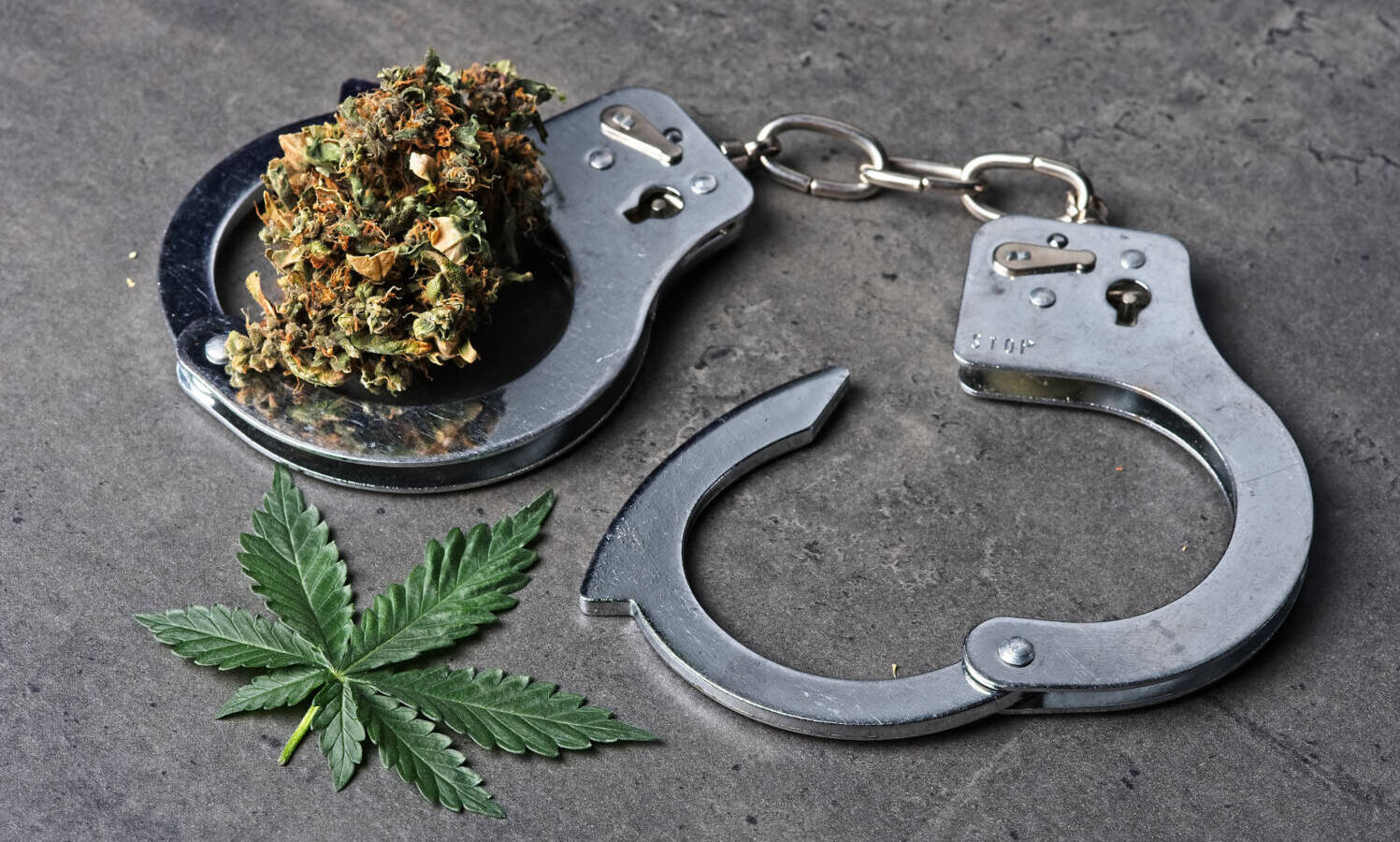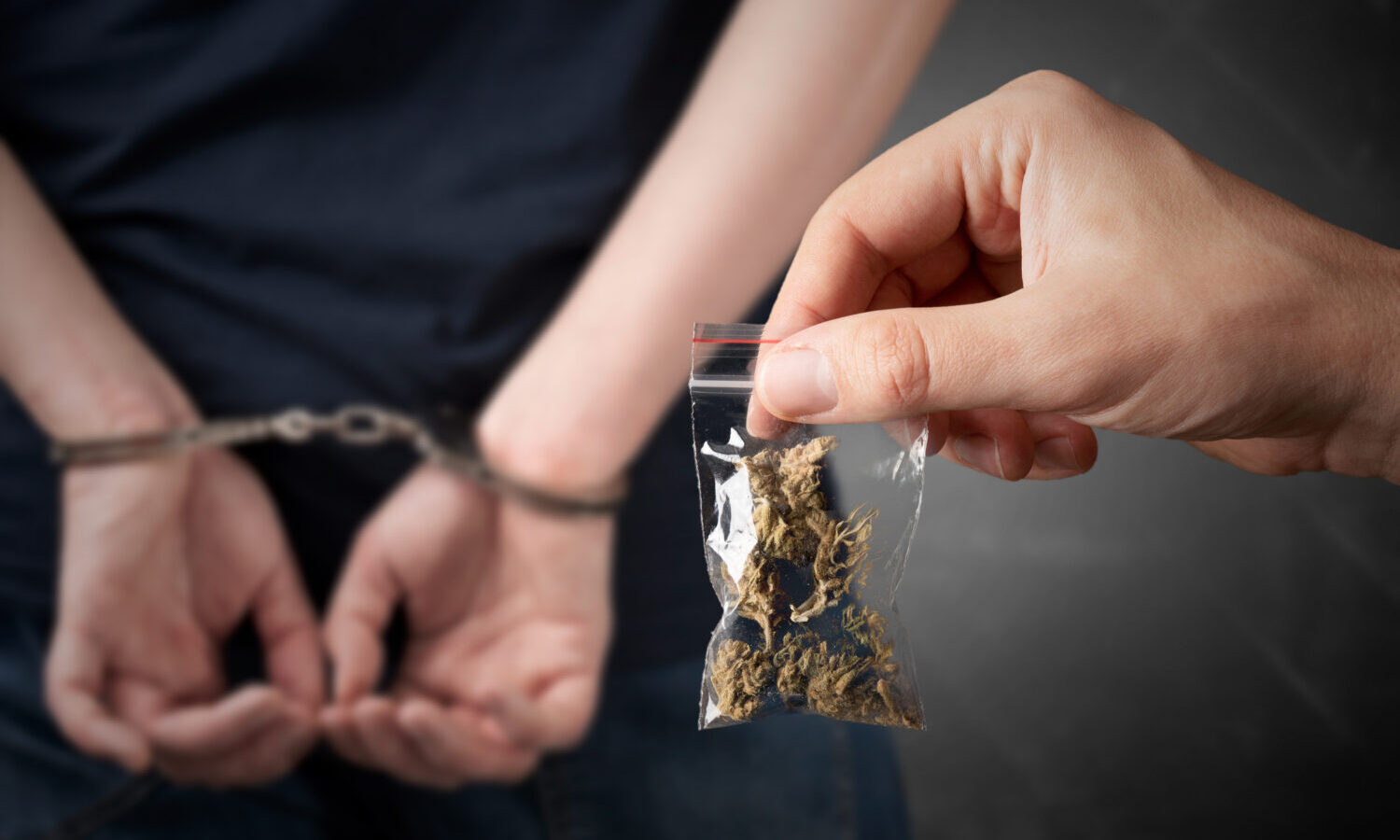While Federal possession cases are falling, prior cannabis convictions are tipping the scales to longer sentences according to a new report.
A new report issued by the U.S. Sentencing Commission found that the number of federal cannabis possession sentencings dropped substantially in recent years, from 2,172 in the fiscal year 2014 to only 145 offenders in the fiscal year 2021. For the 70.1% of cannabis possession offenders who received a sentence of imprisonment in the last five fiscal years, the average prison sentence imposed was five months.
Unfortunately, the report also noted that prior cannabis possession sentences added to an incarcerated person’s criminal history points resulting in longer sentences.
The report entitled Weighing the Impact of Simple Possession of cannabis: Trends and Sentencing in the Federal System was last issued in 2016 and was updated for the fiscal year of 2021 as many states have decriminalized possession.

Possession Still Illegal in 12 States
As of the end of the fiscal year 2021, the report stated that possession of cannabis remained illegal for all purposes in 12 states and territories. In nine states and territories, possession of cannabis is permitted solely for medical purposes. In the 14 states and territories that have decriminalized cannabis, possession of a small quantity of cannabis remains a violation of law, but it is subject to a fine with no possibility of incarceration. An additional 21 states and territories have legalized the possession of small quantities of cannabis for personal use, eliminating all penalties.

Federal Cases Fall

The report said that there was a steep rise in sentencings between fiscal years 2008 and 2013, however, the number of cannabis possession sentencings declined steadily from 1,916 in the fiscal year 2014 to just two cases in the fiscal year 2021 in Arizona. That state had led the country in Federal possession cases. Across all judicial districts, the overall number of cannabis possession sentencings followed the same pattern, declining from a high of 2,172 in the fiscal year 2014 to a low of 145 in the fiscal year 2021. Meanwhile, the number of offenders sentenced for simple possession of all other drug types remained steady across both study periods.
Incarceration Times Drop
Despite improvements in legalization, many offenders are still receiving some jail time. During the last five fiscal years, the report stated that most cannabis possession offenders (70.1%) were sentenced to a term of imprisonment, while 29.9% were sentenced to either probation or a fine only. “For those who received a sentence of imprisonment, the average prison sentence imposed was five months. Due to the relatively short average prison sentences for cannabis possession offenders, no one sentenced for simple possession of cannabis in the last five years was in Federal Bureau of Prisons (BOP) custody as of January 2022.” As of January 2022, 19 offenders were serving time for simple possession of cannabis plus another offense.
RELATED: DEA Reports Uptick In Marijuana-Related Seizures & Arrests: Why Is This Happening? NORML Has An Idea
The data showed that Federal offenders sentenced for cannabis possession in the last five fiscal years tended to be male (85.5%), Hispanic (70.8%), and non-U.S. citizens (59.8%). A little over two-thirds (70.1%) were sentenced to prison and the average prison sentence imposed was five months. As of January 2022, no offenders sentenced solely for simple possession of cannabis remained in the custody of the Federal Bureau of Prisons.

Criminal History Points
While Federal possession cases are falling, prior cannabis convictions are tipping the scales to longer sentences according to the latest report. In sentencing guidelines, prior convictions can add points to a person’s profile. More points can push them into a higher sentencing category. So even though cannabis is increasingly seen as a minor offense, the prior conviction can result in a longer sentence if the person has other offenses.
The report stated, “In fiscal year 2021, 4,405 federal offenders (8.0%) received criminal history points under the federal sentencing guidelines for prior cannabis possession sentences. The criminal history points assigned under the federal sentencing guidelines for prior cannabis possession sentences resulted in a higher criminal history category for 1,765 of the 4,405 offenders (40.1%).”
RELATED: How Not To Get Arrested For Weed In A Legal State
Nearly all (97.0%) of the prior cannabis possession sentences were for state convictions, some of which were from states that have changed their laws to decriminalize (22.2%) or legalize (18.2%) cannabis possession, states that allow for expungement or sealing of cannabis possession records (19.7%), or some combination thereof. “Prior sentences for cannabis possession from these states resulted in higher criminal history calculations under the federal sentencing guidelines for 695 offenders. prior cannabis possession sentences resulted in a higher chc for 40.1% of federal offenders with such sentences in FY21.”
Of the 1,765 offenders whose criminal history category was impacted by a prior cannabis possession sentence, most were male (94.2%), U.S. citizens (80.0%), and either Black (41.7%) or Hispanic (40.1%).
Digging into the crime data for those offenders who saw their sentences increase as a result of prior cannabis convictions, not surprisingly drug trafficking was the most common crime type (38.0%) among the fiscal year 2021 offenders with a cannabis prior conviction. This was followed by firearms (28.9%) and immigration offenses (18.2%). Most of the 1,765 offenders whose criminal history category was impacted by prior cannabis possession sentences were male (94.2%), U.S. citizens (80.0%), and either Black (41.7%) or Hispanic (40.1%).
This article originally appeared on Green Market Report and has been reposted with permission.


